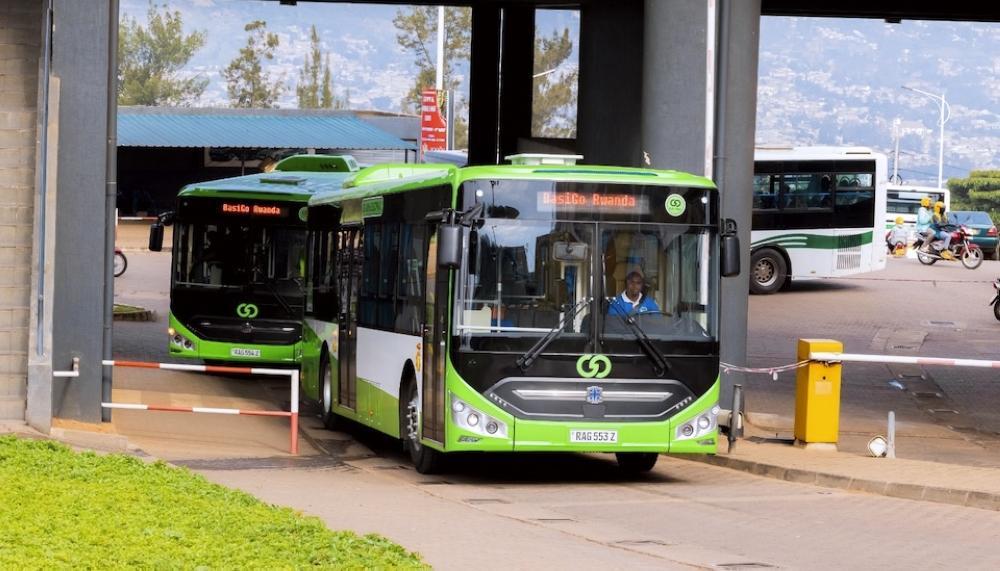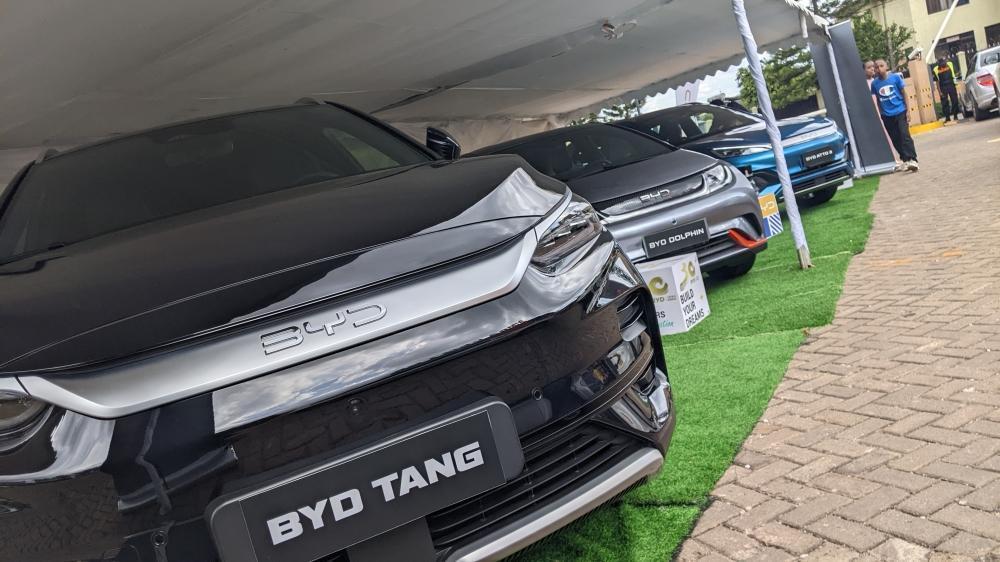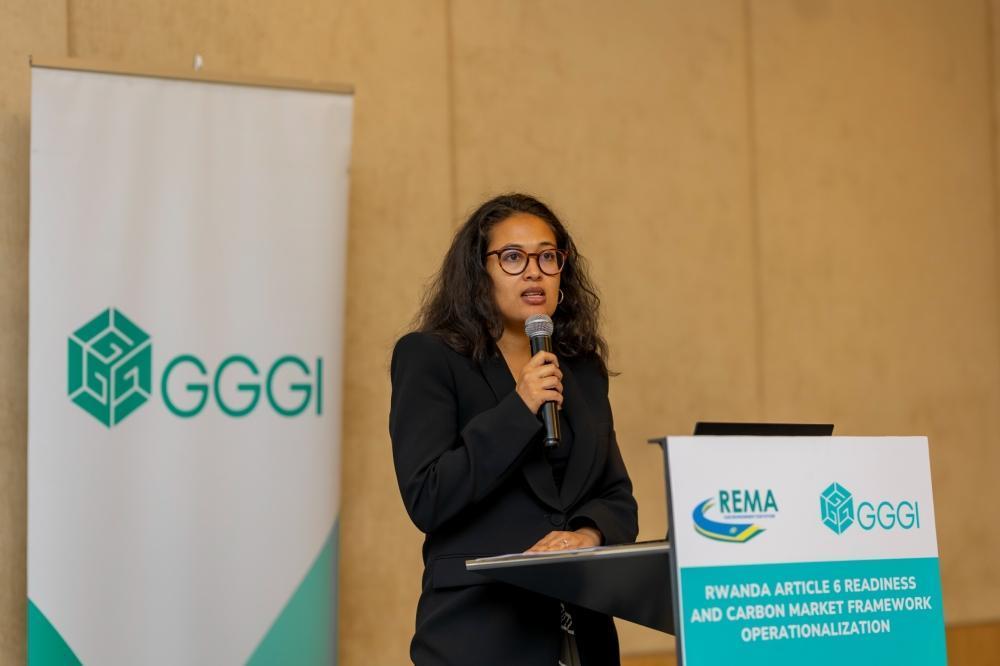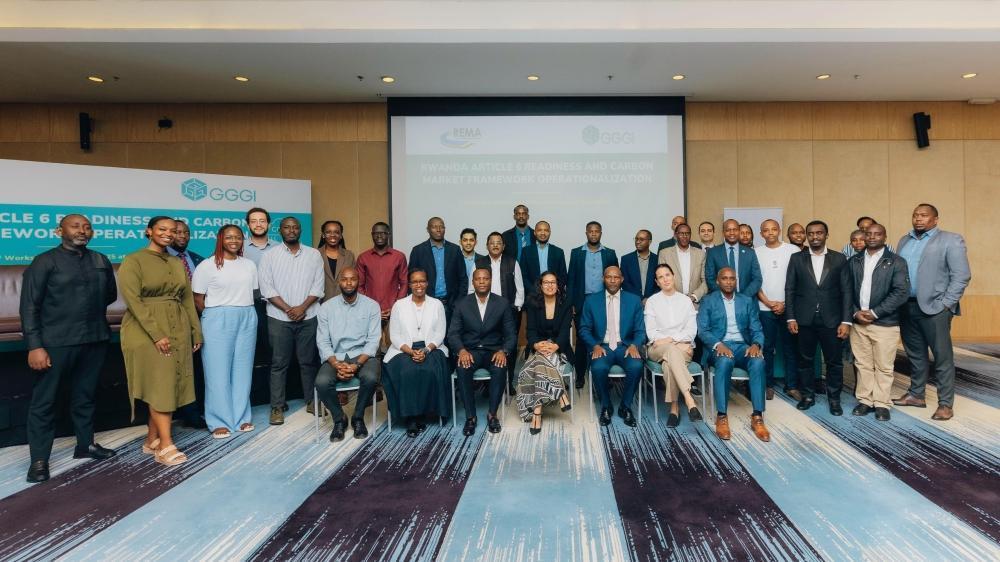Africa-Press – Rwanda. The government’s multi-billion initiative to operationalise the carbon market aims to raise awareness and build capacity among public and private stakeholders, which, according to electric vehicle (EV) dealers, is expected to significantly boost the adoption of electric vehicles in the country.
The project, “Rwanda Article 6 Readiness and Carbon Market Framework Operationalisation,” is funded by the Global Green Growth Institute (GGGI) Carbon Transaction Facility and will be implemented in collaboration with the Rwanda Environment Management Authority (REMA) over two years.
It aims to provide technical support for developing high-quality carbon reduction projects across sectors such as agriculture, forestry, energy, transport, and waste management.
REMA has identified renewable energy initiatives, including the expansion of electric vehicles, as having strong potential in the carbon market. These projects offer investors capacity-building opportunities in project identification and design.
A carbon market is a system where carbon credits—each equivalent to one tonne of reduced carbon emissions—are bought and sold. This enables climate polluters to offset their emissions by funding projects in other countries that reduce greenhouse gases, helping them meet climate targets while still operating their businesses.
$900 million required for EV adoption
Full-scale adoption of electric vehicles and related infrastructure in Rwanda is projected to require up to $900 million in financing by 2030. Investors in EV projects can benefit from financial incentives based on the volume of emissions reduced and sold on the carbon market annually.
“The carbon market framework is a significant step in encouraging private sector participation in building a carbon-neutral economy. Fossil fuel-powered vehicles have long contributed to environmental pollution, while electric vehicles offer a sustainable solution,” said Srinivas Cheruvu, Managing Director of CFAO Mobility Rwanda, which distributes BYD electric vehicles.
Srinivas Cheruvu, the Managing Director of CFAO Mobility Rwanda delivers his remarks at the launch in Kigali
Cheruvu highlighted how EVs can attract carbon market investments, particularly for corporate fleets, given their cost-effectiveness and emission-reducing benefits.
“For instance, the BYD Dolphin electric car, with a 44.8 KWH battery, can travel from Kigali to Rubavu and back (340 km) at a charging cost of Rwf11,000, compared to Rwf57,000 spent on fuel for the same journey. Other models offer ranges of 520 km and 420 km per charge, making them highly efficient. Additionally, these vehicles come with mobile chargers and can be conveniently charged at home,” he noted.
Cheruvu emphasised that Rwanda’s commitment to green growth policies positions its EV market for significant expansion.
Tax exemptions to spur private investment
On the issue of tax incentives, Cheruvu said: “The tax exemption policy is a strong boost for promoting EV adoption in Rwanda. With the government’s emphasis on clean energy and smart technology, we anticipate more initiatives that will drive further growth in the sector.”
Despite the progress, electric vehicle users in Rwanda cite long charging times as a key challenge due to a shortage of public charging stations, particularly fast chargers. Most available chargers take up to an hour to fully recharge an EV battery.
Teddy Mugabo, CEO of the Rwanda Green Fund, noted that the fund is financing several e-mobility companies to expand EV infrastructure, including charging stations.
Partnerships with Singapore and Sweden
Faustin Munyazikwiye, Deputy Director General of REMA, reiterated that renewable energy projects like electric vehicles are central to Rwanda’s carbon market strategy.
“Beyond support from GGGI’s Carbon Transaction Facility, we have established partnerships with Singapore and Sweden to enhance capacity-building and project design. These collaborations will further mobilise climate finance for renewable energy initiatives,” he explained.
Rwanda’s agreements with Singapore, Sweden, and Kuwait under Article 6 of the Paris Agreement aim to facilitate carbon credit trading, enabling these nations to meet their climate goals by 2030.
BYD electric vehicles that were showcased at the venue during the launch
At COP28 in Dubai (December 2023), Rwanda unveiled its National Carbon Market Framework, a strategic blueprint for leveraging market-based mechanisms to cut greenhouse gas emissions. The framework provides clear guidelines for carbon credit trading, encouraging businesses to adopt sustainable technologies.
While implementation has faced delays due to awareness and capacity gaps, REMA is working to address these challenges by strengthening the transparency and functionality of the carbon market.
“By building this market, we aim to attract international investment, foster sustainable development, and contribute to global climate mitigation efforts,” Munyazikwiye said.
Caroline Raes, GGGI Country Representative in Rwanda, underscored the significance of equitable participation in carbon markets to drive investment in emissions reduction projects.
Caroline Raes, GGGI Country Representative in Rwanda reiterated commitment to working closely with Rwanda
“Enhancing Rwanda’s readiness for international carbon markets will unlock substantial financial resources, accelerate climate action, and catalyze green technology transfer,” she stated.
Delegates pose for a group photo after launching carbon market operationalisation project in Kigali
For More News And Analysis About Rwanda Follow Africa-Press










